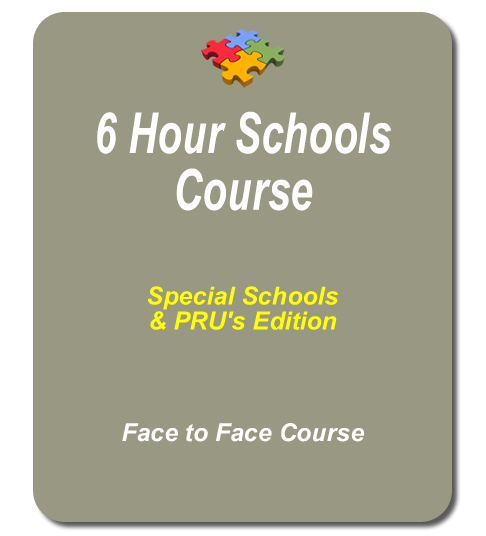Telephone: 01789 653575

The 6-Hour +ProActive Approaches Course (Special Schools) empowers your staff team to consider behaviour in a context and includes the following:
The philosophy behind +ProActive Approaches is one of understanding, empathy and adopting a proactive mindset in relation to behaviours of concern. Through empowering staff members to become inquisitive about behaviour and consider it from a context of either being an unmet need, frustration, anxiety, trauma & attachment issues, environmental factor or communication difficulties, they will be able to understand the behaviours correctly and subsequently develop the correct support plans that will limit the likelihood of behaviour in the first place. This approach will ensure that your service effectively focuses on supporting young people rather than trying to manage them.
Staff teams will be able to correctly understand the behaviours and subsequently develop the correct support plans that will limit the likelihood of behaviour in the first place. This approach will ensure that your school effectively focuses on supporting students, rather than trying to manage them.
You can access a training package that provides practical solutions to serious issues and regularly achieves significant increases in not only course participant’s knowledge, but more importantly, their SKILLS & CONFIDENCE.
This is achieved through a blend of the following:

The 6-Hour +ProActive Approaches Schools Course will give your staff a clear insight into the reasons behind the behaviours they see in the classroom, effective ‘Primary Prevention’ strategies and a practical set of ‘Classroom Specific De-Escalation Skills’. During the course, delegates gain significant benefit from the dynamic nature of the interactive learning, as well as the positive impact on understanding and information retention from the experiential exercises and video case studies.
They will also learn how to deal safely with behaviours of concern that require some element of physical intervention from staff to bring back to a place of safety.
The 6-Hour +ProActive Approaches Schools Course will give your staff a clear insight into the reasons for the behaviours they see in the classroom. During the course, delegates gain significant benefits from the dynamic nature of the interactive learning, as well as the positive impact on understanding and information retention from the experiential exercises and video case studies.
The course covers the following:
The What – Impact on development
The Why – The Science behind the outcome of impact
The How – Practical Application of a Trauma and Attachment Lens
Positive Handling and Restrictive Practices
Please Note – We will complete a full behavioural audit with you prior to the course. This will ensure that we teach the correct techniques for your setting, i.e. Primary versus Secondary etc.
FAQs
Q: Is the course Accredited?
A: No, this course is not accredited due to the shorter nature of the course. Please contact us for more information on our accredited courses, starting from 2 day courses.
Q: How long does the course last?
A: 6 Hours
Q: Where are the courses run?
A: Venue supplied by yourselves – we come to you! We will supply you with a detailed venue specification to make a venue easier to source.
Q: Is the course certificated?
A: Yes, all delegates who pass the course will be issued with a certificate as part of the course fee. Your certificates will include a BILD Act logo. Certificates are issued based on competence and not attendance.
Q: Is the theory part of the course just Powerpoint?
A: Absolutely NOT! The course utilises a unique blend of video, case studies, group exercises, personal reflection and experiential exercises to effectively impart the required knowledge and skills in order to empower staff to support children and young people effectively.
Q: How many delegates can attend?
A: 12 people with 1 Trainer, up to 18 people with 2 Trainers. These ratios are in line with the RRN Training Standards.
Q: How much does it cost?
A: Click on the ‘Download Info Pack’ button below to receive your copy of our PDF Info pack (delivered instantly via email). The pack includes full course details and costs.
For more information on the course and for details on pricing and upcoming dates, please click the “Download Info Pack” button below, or email us on
support@proactiveapproaches.co.uk.
Alternatively, if you have unanswered questions or want to discuss if this course is right for you, use the “Book A Call With The Team” button to arrange a convenient time to speak with us.

